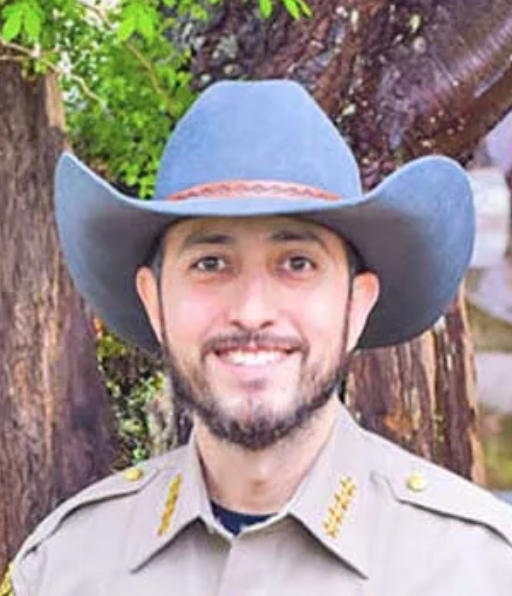Column: Religious leaders need to be political peacemakers
Published 1:38 pm Monday, November 7, 2022
“Blessed are the peacemakers,” asserts Matthew’s account of Jesus’ Sermon on the Mount. But where are they, and where especially are the church leaders, who are called to live and teach that lesson?
Trending
The politically motivated attack on Paul Pelosi, the husband of MAGA-vilified House speaker Nancy Pelosi, and yet another election shallow on substance and deep with vitriol should promote us all to ask that question.
The Pelosi attack — and last summer’s alleged plot to kill U.S. Supreme Court Justice Brett Kavanaugh over abortion and gun control — leads one to fear: Will political assassination become common in America, as it is in Russia? Too many people speak glibly about civil war to dismiss this concern.
Speak up for peace
So, why are pastors as a group not condemning the Pelosi attack? Where, for that matter, are the psychologists, educators, historians and myriad others who should be speaking loudly and together about our divisive and dangerous path? Why are so precious few statesmen preaching and modeling tolerance and cooperation?
It’s especially disappointing that theologians and pastors are not more outspoken about the need to heal. This is not a call to advocate specific policies. It is a request to remind their congregations that the core of the Christian message is to practice universal love and brotherhood, to make peace with your enemy. You can’t call yourself a Christian if you encourage hate and coddle violence.
It’s especially disappointing that theologians and pastors are not more outspoken about the need to heal. This is not a call to advocate specific policies. It is a request to remind their congregations that the core of the Christian message is to practice universal love and brotherhood, to make peace with your enemy. You can’t call yourself a Christian if you encourage hate and coddle violence.
Other religions espouse a gospel of peace. Buddhism, for example, is profoundly dedicated to non-violence.
Sure, there have been some tepid faith-based efforts to address the polluted rhetoric that is emboldening some to commit acts of terror. Following the Pelosi attack, for example, the head of the U.S. Conference of Catholic Bishops said he would pray for peace. Archbishop José H. Gomez of Los Angeles said “I am deeply grieved over this violence, which should have no place in our communities, our political process, or our great nation.”
But many churches have been reluctant to wade into the fray. Last summer, for example, the Presbyterian Church in America’s general assembly rejected a statement condemning political violence, with 75 percent of the representatives opposed. The majority cited the right to “pick up the sword” to fight political tyranny, according to Christianity Today. One of the delegates, Aldo Leon, justified his opposition to the statement with this message: “It’s important to be very, very clear about this in the kind of country we live right now, with a … growing tendency for an overextended federal power.”
Come on: 21st Century America is still among the most free and prosperous nations on earth. (I heard another reminder about this on Friday, when the Ethiopian emigre who was my Uber driver to a Husky football game told me he loved America because it is free and a land of opportunity.)
There is no justification for political violence in this nation, no matter how strongly people disagree about policy. And here’s the irony of the situation: By intimidating and cowering expression, the mere threat of violence weakens liberty, despite its perpetrators’ claims to be protecting it.
There is no justification for political violence in this nation, no matter how strongly people disagree about policy. And here’s the irony of the situation: By intimidating and cowering expression, the mere threat of violence weakens liberty, despite its perpetrators’ claims to be protecting it.
Churches’ reluctance to speak out is especially ironic and disappointing because the use of violence and hate is driven by two deadly “sins” men of faith rail against. One is the lust for power. The second is hubris, or pride, that one’s views are infallible. It give rise to what journalist Eric Sevareid called “dangerously passionate certainties.”
When one always right and sanctimonious, it’s easy to vilify and attribute sinister motives to those who disagree. So opponents are not just wrong, they are evil and want to destroy America, its liberties and its economy.
Violent rhetoric not only causes hate and division. It also impoverishes the election process. The election season that mercifully ended Tuesday was notable for a near total lack of substance and its distortions about the issues of the day. There was no rational discussion about the rising threat of China, the burgeoning national debt, how to end the Ukraine War, or how to fix the immigration system (although a disgusting weaponization of that issue did unfold).
Moving forward
There’s no easy way to swiftly purge hate from our electoral and civic lives. It has always been with us, but not at the dangerous level it is today.
Some suggestions: Ideally, expose yourself to other other views and consider them honestly. Do not add to the cesspool of vitriol on social media. Be a careful consumer of news. Calmly discuss issues with people of differing opinions and see where you can find at least some common ground. Educate yourself on the issues and don’t accept easy explanations or carelessly easy blame. (We have a terrible habit in America of blaming our presidents for everything that is bad, and they are good at claiming credit for all that is good.)
Above all, remember that America remains a great nation despite its challenges: Why, then, are we ripping it apart?
It may be too idealistic to expect people to do all this, although its frightening to consider the alternatives. That’s why it’s so important for religious leaders to help exorcise hate and promote healing. They are among the prominent caretakers of our ethical and moral condition. We should challenge them to engage in the effort. Their faith demands it of them.









